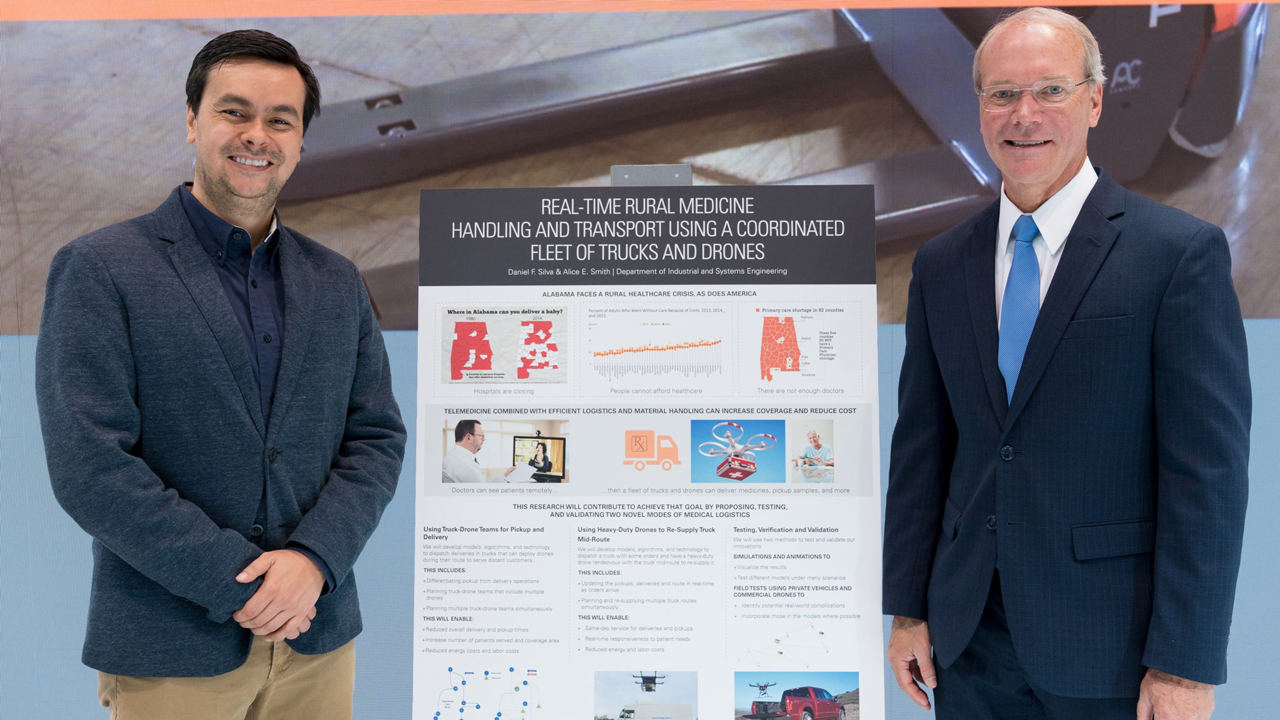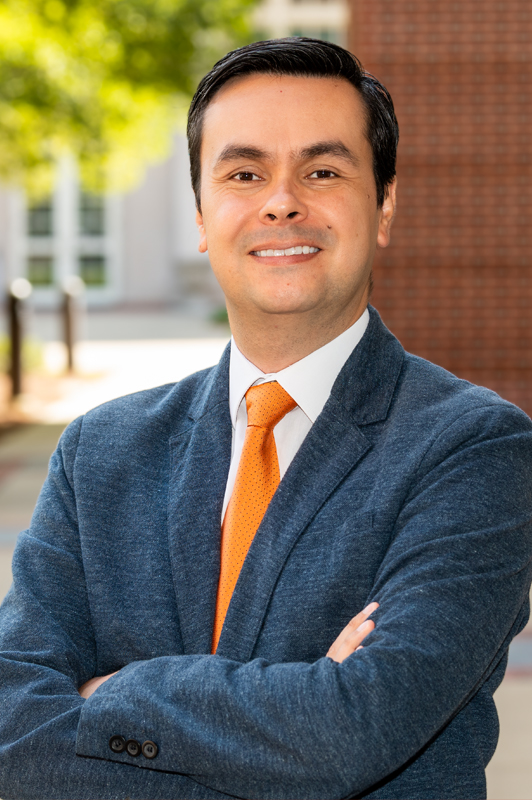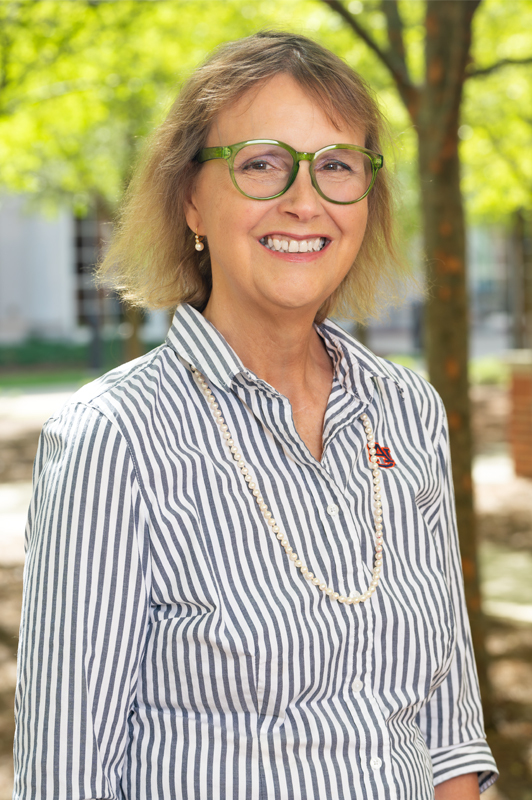Auburn researchers exploring use of drones to aid in rural health care
Published: Apr 8, 2020 11:11 AM
By Cassie Montgomery
Two industrial and systems engineering faculty members have teamed up with Toyota Material Handling North America (TMHNA) to look into ways to help address the lack of rural health access in Alabama and beyond. The project, titled “Real-Time Rural Medicine Handling and Transport Using a Coordinated Fleet of Trucks and Drones,” explores using drones as “flying pharmacies” to transport medicines, samples and medical supplies to rural patients.
“We have been working on drone logistics for parcel delivery for a while. However, most research in that area focuses on urban environments,” said Daniel Silva, assistant professor. “We were inspired by news stories about the difficulties that Alabamians face getting to a doctor or pharmacy in rural areas to try to use our research to help address this issue.”
Silva is working with Alice Smith, the Joe W. Forehand/Accenture Distinguished Professor, to use computer modeling to explore the ways in which new material handling and logistics technologies can help medical professionals reach rural patients in a manner that is quick, efficient and cost-effective. This project offers unique challenges due to the new technologies involved and the difficulties that arise from the application to rural health.
The two are modeling two modes of truck-and-drone logistics delivery to rural patients. The first involves dispatching delivery trucks that can deploy small drones throughout its route, with each drone making one or more stops and then meeting back with the truck along the route. The second involves sending a truck along a delivery route and dispatching a heavy-duty drone from the main depot later to rendezvous with the truck mid-route to resupply it and update the delivery route dynamically, responding to new orders as they arrive in real time.
Silva and Smith are using a combination of mixed integer programming and metaheuristics to model and solve the interplay between the trucks and the drones, and to develop algorithms to optimize delivery and pick-up operations.
“The technical work consists of both modeling and solving,” Silva said. “These problems are complex so the mathematical part is challenging. But with a mathematical model, you are not done. These must be solved computationally and for realistic sized problems, this is also formidable. Our expertise is complementary in mathematical modeling and in computational solving.”
The project is funded by TMHNA through their University Research Program and covers research expenses for one year. Initial field testing is planned for the fall. Silva and Smith’s project is detailed in an article in MHI Solutions, a publication dedicated to manufacturing and the supply chain.
“We hope that our work will contribute to enabling Alabama’s health care providers to offer both telemedicine solutions and pharmacy home delivery and pick up to patients in remote areas or with difficulties to travel, thus contributing to preserving the health of Alabamians,” Silva said.
Media Contact: , cmontgomery@auburn.edu, 334.844.3668

Assistant professor Daniel Silva with Toyota Material Handling North America CEO Brett Wood.



